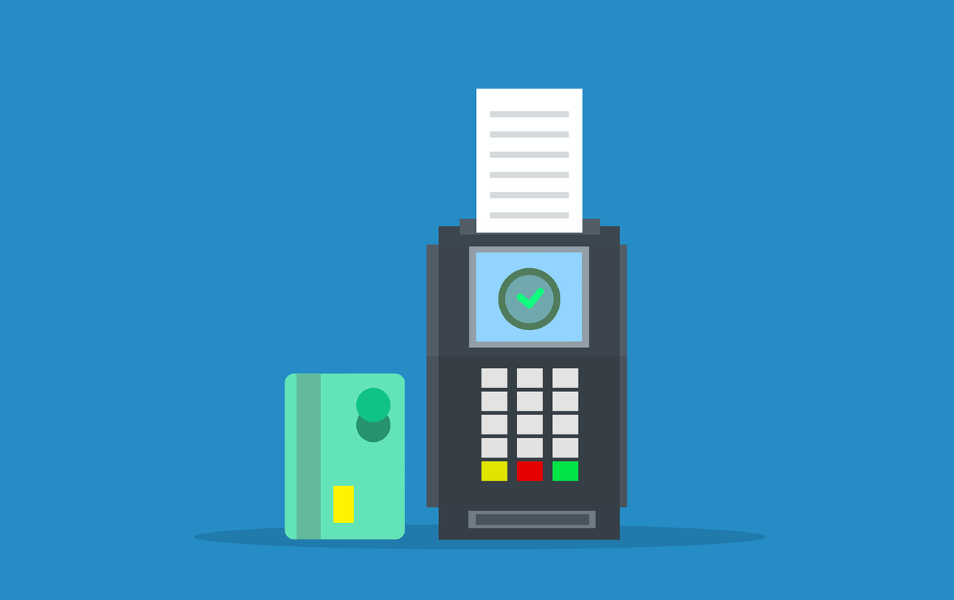As we delve into the world of credit cards, one term that frequently comes up is ‘credit card limit‘. But what exactly is a credit card limit, and why is it so significant? Simply put, a credit card limit is the maximum amount that you can borrow using your credit card. This figure is not arbitrary but is carefully determined by your card issuer based on various factors such as your income, credit history, and credit score.
The credit card limit plays a crucial role in managing your finances. It acts as a boundary that helps in keeping your spending in check, thereby assisting in maintaining a healthy credit utilisation ratio, which is a key component of your credit score. Furthermore, it also protects you from falling into a debt trap by limiting the amount you can borrow.
However, it’s important to note that a credit card limit is not a target to be reached but a ceiling to stay well below. Consistently maxing out your credit limit can negatively impact your credit score and financial health. On the other hand, a well-managed credit card limit can lead to an increase in your credit limit over time, providing you with more financial flexibility.
In this guide, we will take a deeper look into credit card limits, exploring how they are determined, their impact on your credit score, and how to manage them effectively. Whether you’re a first-time credit card user or a seasoned cardholder, understanding your credit card limit is an integral part of leveraging your credit card for financial success.
For a credit card that offers competitive interest rates with minimum documentation and an eligibility criteria that is simple, go for Airtel Finance’s credit cards.
Understanding How Credit Card Limits Work
A credit card limit is decided by your card issuer and can vary widely based on several factors. It’s the maximum balance you can carry on your credit card at any single point. Every time you make a purchase, that amount is added to your balance, reducing the available credit limit. Conversely, when you make payments, your available limit increases.
Factors Determining Your Credit Card Limit
Several factors influence the credit card limit you’re offered. These include your credit score, income level, existing debts, and the issuer’s lending policies. Typically, those with higher incomes and better credit scores are granted higher limits.
Also Read: CIBIL Score for Credit Card – Minimum and Maximum
Importance of Maintaining a Healthy Credit Card Limit
Maintaining a healthy credit card limit is important for both financial flexibility and credit health. It allows for emergency spending and improves your credit utilisation ratio, a key factor in credit score calculations.
How to Increase Your Credit Card Limit
You can request a credit limit increase from your card issuer, usually after demonstrating responsible credit use. Alternatively, improving your credit score or increasing your income may also lead to a higher limit.
Potential Risks of Maxing Out Your Credit Card Limit
Maxing out your credit card limit can negatively impact your credit score and result in over-limit fees. It also leaves no room for emergency expenses.
Tips for Managing Your Credit Card Limit Effectively
- Understand Your Credit Limit: When you receive your credit card, make sure you understand the credit limit. This is the maximum amount your credit card issuer has agreed to let you charge on your card.
- Keep Track of Your Spending: Regularly monitor your credit card statements and keep an eye on your spending. Make sure you are aware of how close you are to your credit limit at all times.
- Maintain a Low Credit Utilisation Ratio: It’s recommended to use only 30% of your credit limit. High utilisation can negatively affect your credit score.
- Pay Your Bills on Time: Timely payment of your credit card bill not only helps you avoid late fees but also positively impacts your credit score.
- Limit the Number of Credit Cards: The more cards you have, the harder it might be to keep track of all your payments and stay under your credit limit.
- Request a Credit Limit Increase: If you’ve been a responsible cardholder, your credit card issuer may agree to increase your credit limit. This can give you more flexibility with your spending and potentially improve your credit utilisation.
- Avoid Unnecessary Expenses: Try to avoid impulsive purchases and focus on essential spending. This can help you stay well within your credit limit.
- Create a Budget: Having a monthly budget can help you manage your expenses and ensure you do not overspend on your credit card.
- Use Alerts and Reminders: Most banks provide SMS or email alerts when you’re nearing your credit limit. Make use of such services to manage your credit limit effectively.
Also Read: How to Check SBI Credit Card Limit? – Guide
Impact of Credit Card Limit on Your Credit Score
Your credit card limit and how much of it you use can significantly impact your credit score. High limits with low utilisation can improve your score, while maxed-out limits can harm it.
What Happens If You Exceed Your Credit Card Limit?
Exceeding your credit card limit can result in over-limit fees, a decrease in your credit limit, or a negative impact on your credit score. Some issuers may also decline any transactions that exceed the limit.
Conclusion: Managing Credit Card Limit Responsibly for Financial Health
In conclusion, understanding your credit card limit and managing it responsibly is crucial for maintaining financial health. By keeping your balance low and regularly monitoring your accounts, you can utilise your credit card as a powerful financial tool. Remember, a credit card is as much a responsibility as it is a privilege.
FAQs:
Q: What is a credit card limit?
A: A credit card limit is the maximum amount of credit that a financial institution has extended to you for your credit card. This is the highest balance you can carry on your card at any given time without incurring penalties.
Q: How is the credit card limit determined?
A: Credit card limits are determined by the card issuer based on several factors, including your credit score, income level, and your credit history. If you have a high credit score and a reliable income, you are likely to receive a higher credit limit.
Q: Can I exceed my credit card limit?
A: Yes, it’s possible to exceed your credit card limit, but it’s not advisable. Going over your credit limit can result in over-limit fees, a decrease in your credit score, and it could even lead to your card being declined.
Q: Can I increase my credit card limit?
A: Yes, you can request a credit limit increase from your card issuer. This is typically done by contacting your credit card company directly. However, approval for a credit limit increase depends on factors such as your creditworthiness and repayment history.
Q: Does a higher credit card limit affect my credit score?
A: A higher credit card limit can potentially improve your credit score by lowering your credit utilisation ratio, which is the amount of credit you’re using compared to your credit limit. However, if a high credit limit encourages you to spend more and carry a higher balance, it could negatively impact your credit score.




